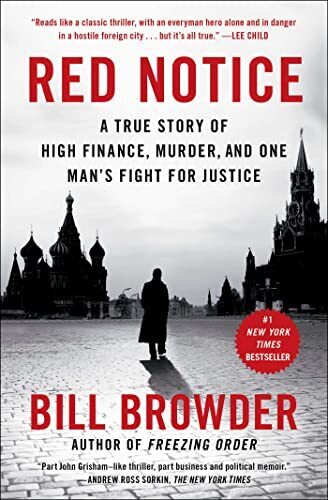
The good
-
Fascinating look at Russia shortly after the fall of the USSR. I had no idea how the country transitioned from 100% of everything owned by the government to nearly 100% of everything private owned, via a voucher privatization system, and this book gives some great insights about that. It also explains the rise of the Russian oligarchs, who of course took advantage of the voucher privatization system, so that something like 40% of the country ended up being owned by just 20 people. Bill Browder does not pull any punches here, showing many of the dark sides of how Russia works.
-
Also, an interesting look at the world of finance, investment banking, Wall Street, major consulting firms, and so on. Again, Bill Browder does not pull any punches, and you see the dark side of these industries.
-
And, putting the two previous items together, it’s an interesting look at what happens when the world of finance as led by someone from the US and UK clashes with the world of Russian oligarchs and Putin. It is a wild story that includes international politics, entrepreneurship, espionage, murder, organized crime, and more; and all of it is apparently a true story.
The not so good
-
There’s a strange tension here where Bill Browder shows some of the evil practices of consulting companies, financial firms, and Russian oligarchs, but if you take a step back, you realize that he participated in some of the exact same practices! He worked at the consulting companies and financial firms; he started his own financial firm; and both at the places he worked and his own firm, he took advantage of the voucher privatization system to buy up tons of Russian stock at absurd prices.
-
There’s also a tension where Bill Browder shows a heroic stance he took against the Russian government, and the awful things they did, such as raiding his offices, committing fraud, death threats, throwing people in prison, and even torturing one person to death, but when you take a step back, you realize that his stance was primarily in defense of his company, a large investment fund that made most of it’s early money by taking advantage of the voucher privatization system. I understand letting that all the time and money he put into that fund meant a lot, but was it really worth all the suffering?
